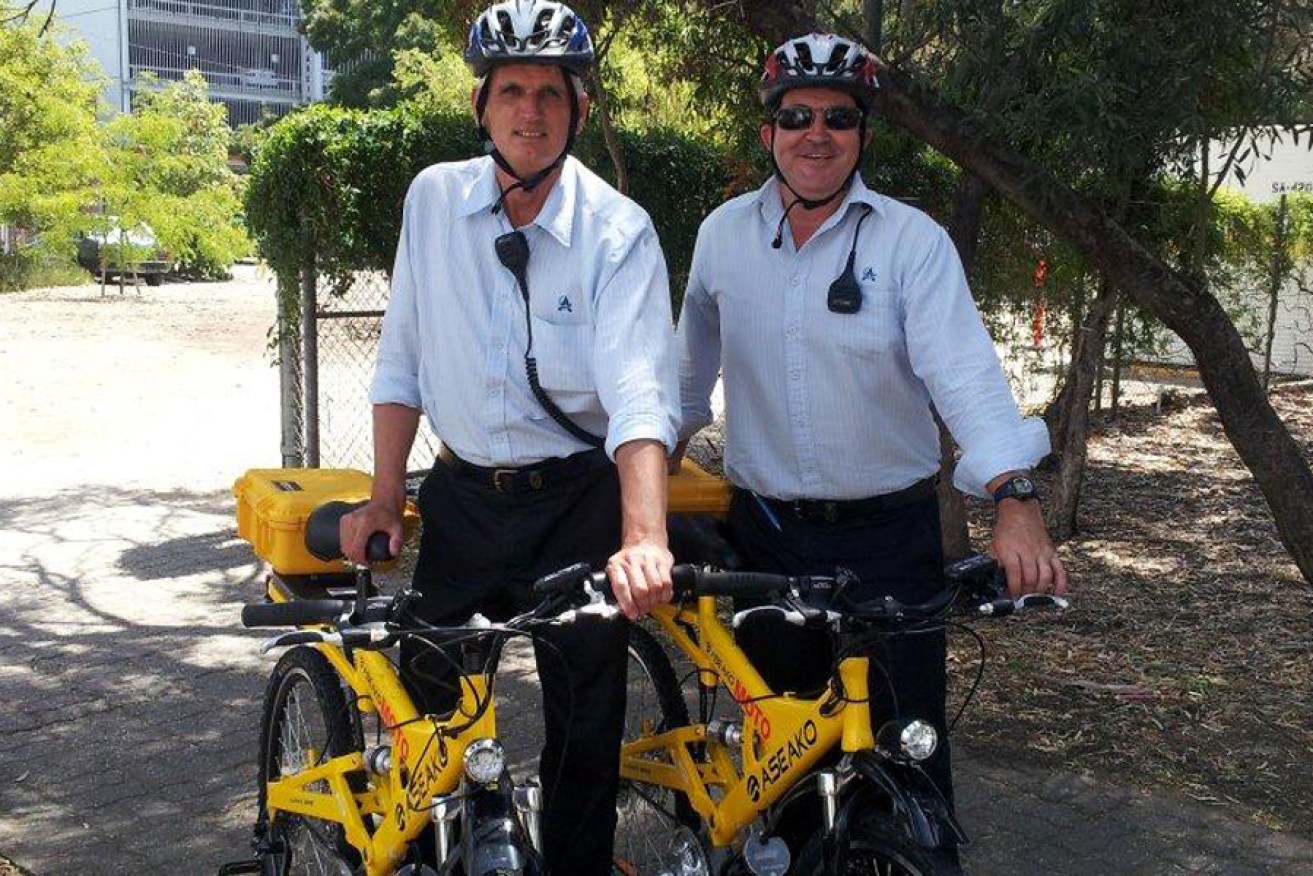More power for electric bikes


Adelaide City Council parking and information officers with electric bikes they are trialling.
Electric bicycles could be set for growth in South Australia, with legislation to be introduced this year to increase the maximum power of the motor-assisted cycles.
At the moment, South Australia only allows certain kinds of electric bikes with a maximum power output of 200 watts.
However, the State Government is planning to introduce legislation this year to increase the maximum power output to 250 watts –a move cycling lobbyists say will bring the state in line with the overseas standard.
The potential for growth in electric bike sales has already sparked discussion about whether bike infrastructure needs to be upgraded, including making bike lanes wider.
The CEO of Bicycle SA, Christian Haag, says the legislative change will allow the importation of cycles from Europe, where electric bikes are seen as “the next boom in industrial design”.
“It will bring Australia more into the international market – more on a par with the European Community,” Haag said.
While he says it is unlikely that we will see the massive boom that some European countries have experienced, he does believe there is room for growth, particularly among older people.
A spokesperson for the Department of Planning, Transport and Infrastructure told InDaily that the State Government would act soon to bring state law in line with the Australian Road Rules, which were changed in 2012 to allow the importation of 250w “pedalecs”.
Pedelecs are a kind of electric bike – or ‘e-bike’ – where the rider’s pedaling is augmented by a small electric motor.
The DPTI spokesperson said Cabinet had approved legislative and regulatory changes so 250w pedalecs could be treated as bicycles and therefore be exempted from registration, licensing and CTP insurance requirements.
“It is hoped the Bill will be introduced into Parliament and pass before the end of the year,” the spokesperson said.
Another key player watching the electric bicycle market closely is Adelaide Lord Mayor Stephen Yarwood, whose council is trialling two electric bikes with parking inspectors.
Yarwood has just returned from a major cycling conference in Vienna, and was surprised by the boom in electric bikes in Europe.
In Germany there are 1.3 million electric bikes on the roads, with a top speed of 30km/h and a range of between 30 and 40km between charges.
While Yarwood sees many benefits of the e-bike, particularly for older riders and businesses, such as couriers.
He also believes they have implications for the road and cycle network that will need to be addressed over the next five years as Adelaide’s cycling culture shifts from “the lycra set” to commuter cycling.
“E-bikes are a new market that’s growing quite rapidly,” Yarwood told InDaily.
“I would suggest there are more questions than answers where it comes to the challenges. (However) I think ultimately we need to be positive about this.”
The challenges include the possibility of more bikes on the road system, including bikes travelling at varying speeds.
While he’s not certain about the solution, he does believe the bicycle road network will need to be expanded to cope with increased traffic, including different kinds of cyclists using a variety of bike types.
“We need to get our head around the fact that more cycling in the 21st century is going to bring new challenges,” he said.
“I do predict a future where we will need to think about managing cyclists doing different speeds … certainly bicycle lanes that are wider will be able to address some of these issues.”
Fresh from his European trip, Yarwood is also enthusiastic about the approach in Denmark’s cities, where cycling networks are not a piecemeal conglomeration of bike lanes and off-road paths, but are “as well connected and well planned as the road network”.
Yarwood attended the Velo-City Global Conference in Vienna, a regular conference series which focusses on planning and cycling.
The four-day conference will be held in Adelaide next year and Yarwood is personally involved in planning for the event.
His ideas for getting the city involved include a second-hand bicycle market for the city.
Yarwood believes that experience overseas shows that the conference itself, and the ideas that come out of it, can stimulate a growth in bicycle culture in the city where it is held.
Since Munich held the conference in 2007, Yarwood said the proportion of all trips undertaken in the city by bicycle had increased from 6 per cent to 17 per cent.
For a summary of the current restrictions on electric bikes in South Australia, go here.




